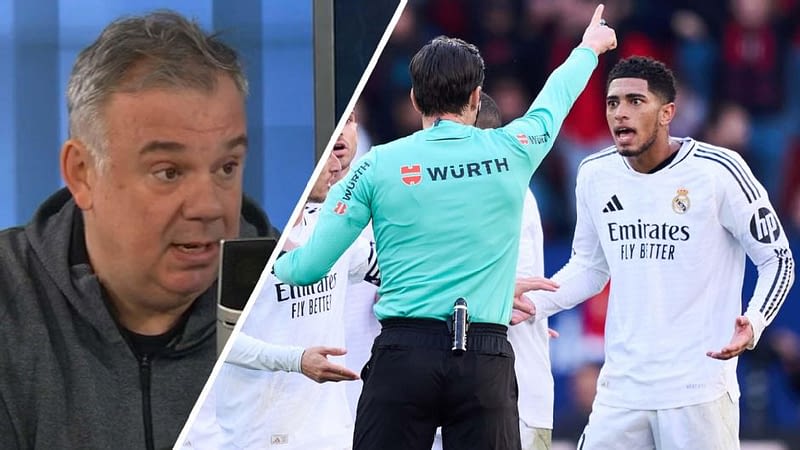Referee Abuse in Football: A Growing Concern
In the world of football, emotions often run high, and the recent incident involving Real Madrid’s Jude Bellingham and referee Jose Munuera Montero has once again brought the issue of referee abuse to the forefront. The Spanish football federation (RFEF) has expressed its deep concern over the abuse directed at Montero following his decision to show Bellingham a red card during a match against Osasuna. This situation highlights the “hatred and verbal violence” that match officials frequently endure.
During the 1-1 draw at Osasuna, Montero believed that the 21-year-old England midfielder had used foul language towards him, leading to the red card. However, both Bellingham and his coach, Carlo Ancelotti, have stated that the official was mistaken in his interpretation of the situation.
The RFEF released a statement on Monday, expressing their dismay at the attacks and threats Montero has received, not only targeting him personally but also his family. “The professional referees are absolutely repulsed by the attacks and threats that our colleague Jose Luis Munuera Montero is receiving through social networks, which not only target him personally but also his family,” the statement read.
This incident is not an isolated one. Referees across the globe face similar challenges, and the RFEF’s statement further emphasized the broader issue: “These attacks add to the hatred and verbal violence through which we have to carry out our professional work every weekend, and that in the base categories becomes, even more regrettably, physical violence in many cases.”
As the football community grapples with this issue, Bellingham could potentially face a lengthy ban under guidelines for the use of “offensive terms or attitudes” towards match officials. However, the player has maintained that the referee misunderstood him. “I’m an English player … and when I speak on the pitch it’s normal that I use expressions that come naturally to me in English,” Bellingham explained to reporters on Saturday.
He further clarified, “There was no insult, you can see in the video right away, it was an expression to myself, I’m not even directing myself towards the referee. But obviously there was a misunderstanding. He’s believed I’ve said it to him.”
Key Points to Consider
- The incident underscores the ongoing issue of referee abuse in football.
- RFEF’s statement highlights the personal and professional challenges faced by referees.
- Bellingham’s potential ban raises questions about communication and cultural differences on the pitch.
- The need for better protection and support for referees is evident.
As we reflect on this incident, it’s crucial to consider the broader implications for the sport. Referees play an essential role in maintaining the integrity of the game, and their protection should be a priority. The football community must come together to address these issues and ensure a safe and respectful environment for all involved.
In conclusion, while the passion and intensity of football are what make it a beloved sport worldwide, it’s essential to remember the human element involved. Referees, like players, are an integral part of the game, and their well-being should be safeguarded. As the situation with Bellingham and Montero unfolds, it serves as a reminder of the ongoing challenges faced by match officials and the need for collective action to address them.
Originally Written by: Reuters





















